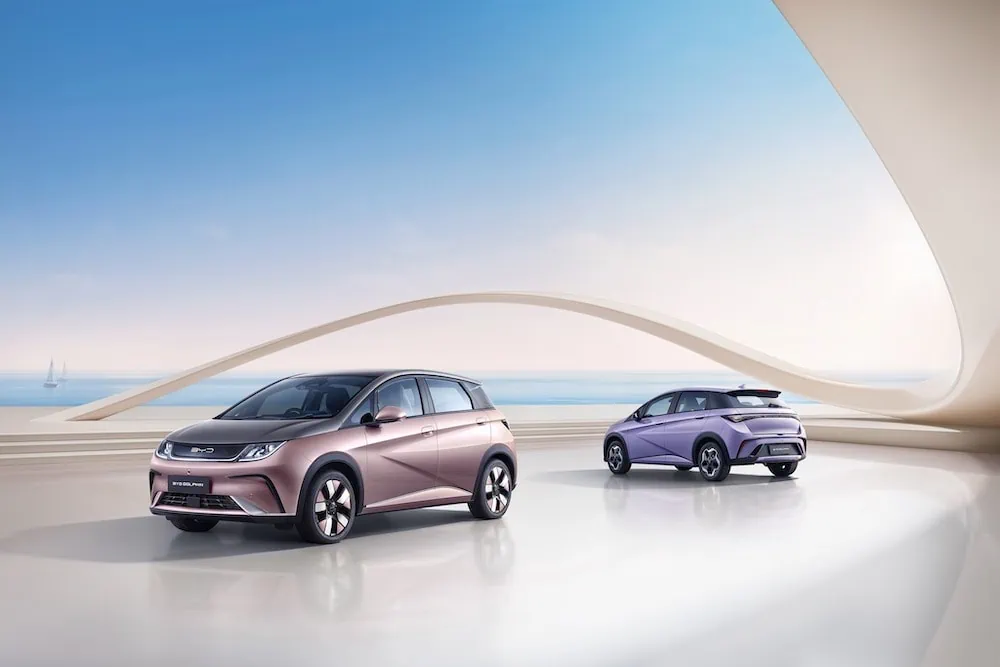BYD and Tesla are battling it out to be the world’s biggest electric vehicle company. But what are the implications for the rest of the industry and global markets as a whole?
2024 started with a surprise for the automotive industry as Chinese manufacturer BYD announced that it sold more battery electric vehicles (BEVs) (526,409) than Elon Musk’s Tesla (484, 507) in Q4 of 2023. This is the first time that sales by a Chinese company have outpaced the US titan.
BYD (short for ‘Build Your Dreams’) was founded in 1995 with an initial focus on rechargeable batteries. It expanded into automotive after buying a Shaanxi-based car company in 2003, using its battery experience and supply chains to pivot to electric vehicles. It sold over 3 million EVs in 2023 (including both hybrid and battery-only models), an increase of 62% over 2022. Its popular models include the best-selling Qin Plus, a compact car that retails for between RMB 99,800 and 176,800 (£11,065-19,602), the Dolphin hatchback, which retails for between RMB 116,800 and 139,800 (£12,949-15,497), and the premium Yangwang SUV.
Technically, Tesla still sold more BEVs across the whole of 2023 (1.81 million vs. BYD’s 1.57 million), and it remains the world’s most valuable car maker, but as Sino Auto Insights noted, “symbolically an important line has been crossed”. Tesla’s innovative approach, high-performance vehicles and strong branding (driven, in part, by the inescapable figure of Elon Musk) have contributed to its dominant position, but its higher price point has made it less accessible to a broader market segment, an area where BYD has gained a competitive edge.
This edge over other Chinese brands and, increasingly, international brands, has been sharpened by a number of external and internal factors.
Like all Chinese EV companies, BYD has benefitted from extensive Chinese government subsidies over the past few decades. The government has been subsidising producers of EVs for public transport, taxis and the consumer market since 2009. More than RMB 200 billion (£22.14 billion) was spent on EV subsidies and tax breaks in China over the 2009-2022 period. Moreover, EV consumers in China have received purchase subsidies from the government for a number of years.
China also has a very strong position in the supply chains for the critical materials used to make EV batteries, especially rare earths. At present, China accounts for 85% of the world’s rare earth processing and 92% of rare earth magnet production.
In terms of internal factors, BYD has also obviously benefitted from its background as a battery manufacturer, which has given it a head start in terms of technology and access to materials. By keeping battery production in-house, it can also achieve significant cost savings.
The big threat posed by BYD’s recent success is increased competition for established automotive brands.
Western markets have largely taken a protectionist stance in response to the massive growth of China’s EV sector. In September 2023, the European Commission launched an investigation into whether to impose higher tariffs on Chinese BEVs (the standard EU tariff on imported vehicles is 10%). The US currently imposes 25% tariffs on Chinese automobiles, and the Biden administration is reportedly considering upping this levy. Chinese automakers could get around this by setting up factories in Europe or in Southeast Asian countries.
Nevertheless, some commentators suggest that BYD and Tesla are so far ahead of the field that other companies are already struggling to compete. Indeed, their growth is showing that brand recognition or company history are not predictors of success in the EV market. Future growth will come down to things like AI integration and battery technology, rather than just the cars themselves, giving Silicon Valley and fast-moving Chinese companies a leg-up over traditional car manufacturers.
Now the question for BYD will be whether it can translate its current sales figures, most of which are concentrated in the Chinese market, into global success. For Tesla and other EV manufacturers, the rise of BYD serves as a call to innovate in an increasingly competitive market, innovation that could have a positive knock-on effect in other areas. Ultimately, getting more EVs of any brand on the road is an important step towards giving more people more access to sustainable transportation options.




